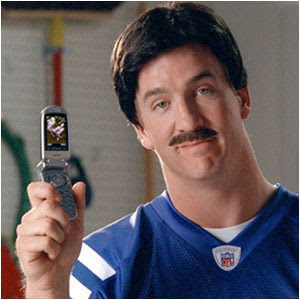Despite their talent on the court, stage or course, aptitude is not always the deciding factor in endorsement deals. Rather it seems more of a popularity contest.
This seems to make since because when people admire an athlete or celebrity they are more likely to listen them. But what makes a celebrity admirable and popular?

As Gamson discusses, there is fame of greatness and manufactured fame. Most of the celebrity endorsers that companies hire have achieved their fame through achievement in their field. But why are not all celebrities with that level of fame doing advertisements and endorsing products? What puts some above the rest? I think that this is most noticeable in the arena of sports. For example why is Peyton Manning chosen for commercials rather than other famous football players? Is it because he is well spoken, well educated, charismatic, funny, comedic and charming or is it because he is the best. Granted Peyton is that good and in my opinions deserves every bit of that attention (and personally I enjoy his commercials), so perhaps he is not the best example but it does raise some questions. Another example is tennis star Maria Sharapova, she was once number one and is still a strong player but she is not the best. Yet she is in a large number of advertisements she always seems to be pushing cannons latest camera. So does it come down to who the fans want and who they will listen to? But if she is not the best than why is she so well liked. Does her appearance affect how much she is liked as a player or as an advertiser?

I think it is because of the visions regime. These celebrities are not just famous on the court, field or movie; their fame continues into their everyday life and so does the image they have built. Fans do not just like players because of their performance but because of what they do outside the game. In some cases they stay quiet and private which is fine and respectable. But once one negative or positive thing gets out that becomes part of their image. For example an athlete getting a DUI or donating time and money to charity. Sometimes these things go under wraps but usually the information is released to the public and the celebrity has one more thing associated with their image. While that detail has nothing to do with what got them noticed or established their greatness, it becomes part of their identity. And from that identity fans, critics and audiences can decide how they feel about that particular performer. Celebrities are constantly under scrutiny and their role does not end when the whistle blows or the director yells cut. Celebrities have the option of staying in character or being themselves for all the world to witness and their audiences deem them popular or undesirable. Those that pull out with the most positive publicity win not only the popularity contest but the endorsements deals as well.
No comments:
Post a Comment